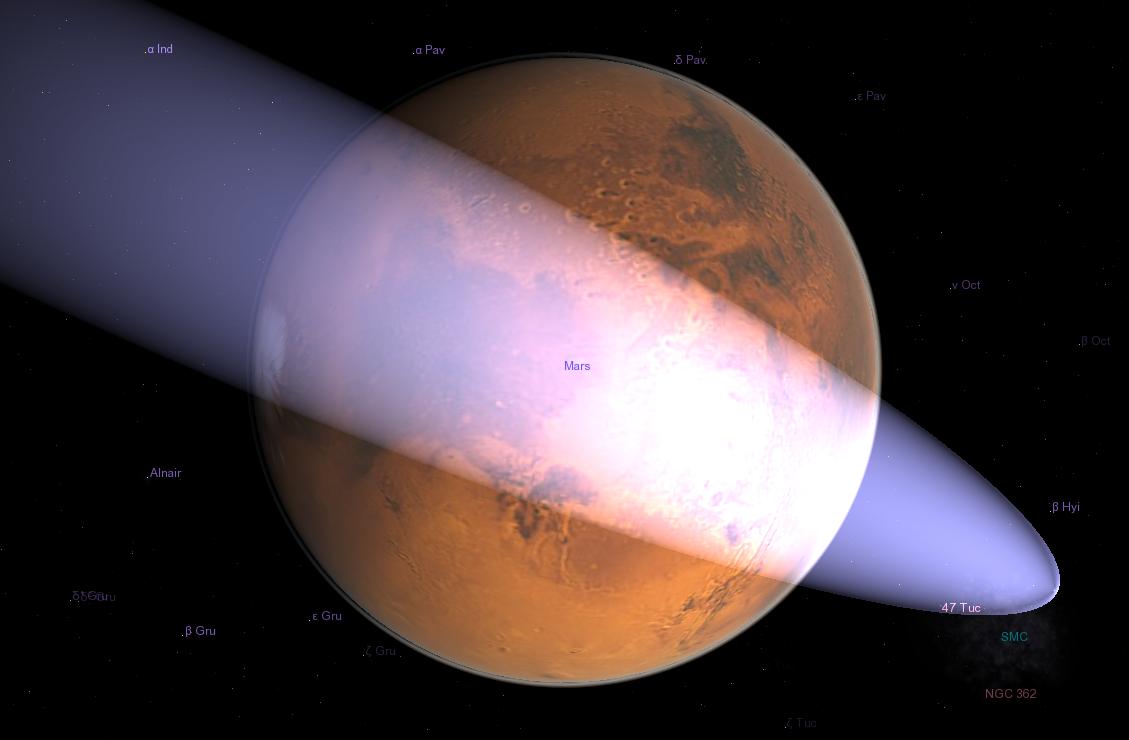Basically, an extremophile is an organism that thrives in conditions that are seemingly too extreme to support any kind of life. Last year, for example, scientists confirmed the existence of microorganisms living half a mile below the ice of Antarctica, but that isn’t the weirdest place you can find microbial life. Different types of extremophiles have been observed in places as inhospitable as the bottom of the Pacific Ocean, the driest deserts on Earth, boiling hot springs and even deep sea hydrothermal vents.
This month’s confirmation that liquid water exists on Mars has gotten a lot of people â€" myself included â€" wondering if the Martian landscape may include an extremophile, or two (billion, that is). In general, the rule of thumb here on Earth is that water generally supports life. Of course, it’ll be a while before we know for sure if the same holds true on the Red Planet, but the potential implications for such a discovery are literally enormous. It would be final, incontrovertible proof that Humankind is not alone after all and that, somewhere out there, life does indeed exist on other worlds. Just take a second and imagine that.
...But that isn’t to detract from the enormous significance of finally confirming that there is water on Mars, a planet long considered to be dead and devoid of anything even remotely connected with life as we know it.

New data retrieved from a NASA satellite has been used to link the long, dark streaks that appear on Martian slopes with salt deposits. If this is indeed the case, then these salt deposits could allow water to remain in a fluidic state for long enough for it to move around. This is no mean feat, as Mars features average temperatures well below zero and the low atmospheric pressure means that any liquid water would boil instantly. However, it has been theorized that the deposits of salt could change all this, altering the freezing and vaporization points of water and, in the process, allowing for the existence of the life giving liquid.
Long-term observation of the Red Planet corroborates this theory, as the streaks tend to change with the seasons, leading some scientists to link them with trickling water, however this could never be proven, until now.
Luju Ojha, a PhD student at the Georgia Institute of Technology, has used data from NASA’s Mars Reconnaissance Orbiter, which makes use of an instrument called Crism to determine the chemistry at work on the Martian surface, to make the incredible claim.
By employing the Crism data and looking at four separate locations where the dark streaks regularly appear and disappear during the Martian summer, Mr Ojha was able to prove that these formations are covered with salts, particularly magnesium perchlorate, chlorate and chloride, the exact types of salts that are known to alter the freezing and vaporization points of running water.
So, it is fairly safe to say that we now know that there is water on Mars. The next big question (before we get to the possibility of anything living in it) is, where is it coming from? It has been suggested by some that ice exists at a great depth below the surface and by others that the salts are literally pulling moisture from the atmosphere itself. For now, we just don’t know.
...And now back to the million Dollar question, first put to us by the philosopher David Bowie in 1973, Is there life on Mars?
Interviewed by BBC News, Dr. Joe Michalski, a Mars researcher at London’s Natural History Museum was optimistic, "We know from the study of extremophiles on Earth that life can not only survive, but thrive in conditions that are hyper-arid, very saline or otherwise extreme in comparison to what is habitable to a human. In fact, on Earth, wherever we find water, we find life. That is why the discovery of water on Mars over the last 20 years is so exciting."
The wonderful, exhilarating reality of this discovery is that, through its profound implication, you may very well see within your lifetime an answer to that most vexing (and famously unanswerable) of questions, are we alone in the universe?
No comments:
Post a Comment